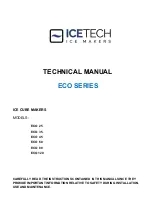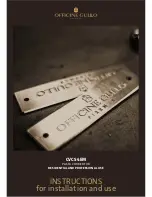
Before cleaning your coffee maker, switch off
the on/off button, unplug the appliance from
the socket and wait until it has cooled down.
Clean the filter holder, the filter, the jug and
the jug lid in lukewarm soapy water, rinse
with clean water and dry the parts before
reassembling them.
10. CLEANING THE COFFEE MAKER
All moving parts may be washed in the
dishwasher.
Clean the outside of the coffee maker with a
damp cloth. Do not use detergents or
abrasive products to clean it.
Do not immerse the appliance in water or
run it under the tap.
11. REMOVING LIMESCALE
• Depending on how hard the water is in
your area and how often you use your
coffee maker, it is possible that the pipes
may become blocked due to the lime
content of your water. This becomes
noticeable when the filtering process
lasts longer than usual. In order to avoid
this, you must remove limescale from the
coffee maker. To do so, you may use
specific limescale removers on the
market especially designed for coffee
makers or else follow the following
procedure:
• Fill the jug with one-part vinegar and
three parts water.
• Pour the vinegar and water mixture into
the water container and operate the
coffee maker. Wait until all of the solution
has filtered through to the jug.
• Repeat this operation two or three times,
depending on how much limescale there
is in your coffee maker.
• After you have removed the limescale,
operate your coffee maker two or three
times with just water so as to remove any
vinegar left behind.
• We recommend that you remove the
limescale from your coffee maker every
four weeks.
12. INFORMATION FOR THE CORRECT
DISPOSAL OF ELECTRICAL AND
ELECTRONIC APPLIANCES
local authority differentiated waste collection
centre or to a dealer providing this service.
Disposing of a household appliance
separately avoids possible negative
consequences for the environment and
health deriving from inappropriate disposal
and enables the constituent materials to be
recovered to obtain significant savings in
energy and resources.
To remind you that you must collaborate
with a selective collection scheme, the
symbol shown appears on the product
warning you not to dispose of it in traditional
refuse containers.
For further information, contact your local
authority or the shop where you bought the
product.
At the end of its working life,
the product must not be
disposed of as urban waste.
It must be taken to a special
12
Summary of Contents for CG-414 D
Page 27: ...26 H 01 Cafetera CG 414 qxd 28 2 07 12 38 P gina 25...
Page 29: ...h m 3 w 1 13 14 15 h 17 m 16 1 59 01 23 59 28 8 8 9 10...
Page 30: ...29 2 3 2 3 4 12 11 01 Cafetera CG 414 qxd 28 2 07 12 38 P gina 28 01 Cafe...
Page 48: ...47 9 2 5 3 6 10 4 01 Cafetera CG 414 qxd 28 2 07 12 38 P gina 46...
Page 50: ...49 8 11 10 9 2 3 2 3 4 01 Cafetera CG 414 qxd 28 2 07 12 38 P gina 48 12 8 01 Cafet...
Page 52: ...51 9 2 5 3 6 10 4 01 Cafetera CG 414 qxd 28 2 07 12 38 P gina 50...
Page 54: ...8 9 8 10 11 1 3 2 3 2 3 4 12 53...
Page 55: ...54...














































